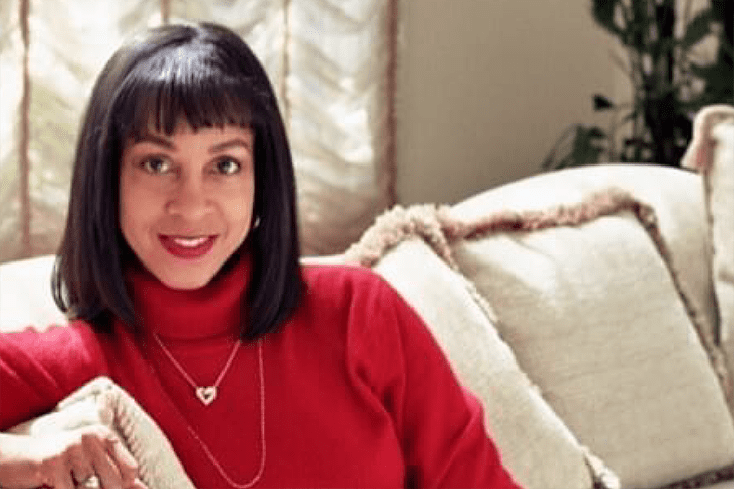June 30, 2023
By Margot Harris

In her 1992 debut novel, “Your Blues Ain’t Like Mine,” author and journalist Bebe Moore Campbell unpacked the pervasive racism in the American South and explored the devastating consequences of discrimination and white supremacy. Five books and 13 years later, she would publish “72 Hour Hold,” the story of a mother desperate to find mental health treatment for her adult daughter living with bipolar disorder.
These best-selling works, while fictional, held personal significance to Campbell; she, herself, lived at the complex intersection of race and mental health in the U.S. As a Black woman, academic and writer, she navigated discrimination and the generational trauma that much of the Black community has experienced. Later, she witnessed how a close family member struggled to manage a serious mental health condition and find the appropriate care.
Campbell’s lived experience illustrated a painful reality that far too many people experience: mental illness does not discriminate, but the society surrounding it does. As a result, people of color have, historically, been unable to access the care they need and find support in their communities.
In response to the pain and injustice she witnessed and experienced, Campbell became a tireless activist for underserved and underrepresented communities in the mental health space. Through her writing and public speaking, she spearheaded conversations about mental health in the Black community and articulated how racial discrimination exacerbated the stigma surrounding mental illness. She also began to address the greater impact of stigma — the community’s reticence to seek help.
“No one wants to say, ‘I'm not in control of my mind.' No one wants to say, 'The person I love is not in control of [their] mind,’” she explained. “But people of color really don't want to say it because we already feel stigmatized by virtue of skin color or eye shape or accent and we don't want any more reasons for anyone to say, 'You're not good enough.'"
Campbell went on to co-found NAMI-Inglewood — now called NAMI Urban Los Angeles — an affiliate that served a predominantly Black neighborhood and has become a beacon of hope for Angelinos needing mental health education and support.
In 2005, Campbell and her longtime friend Linda Wharton-Boyd outlined the concept for a National Minority Mental Health Awareness Month to bring more visibility to the cause. Tragically, Campbell passed away the following year. But in 2008, The U.S. House of Representatives recognized her unparalleled contributions by designating July as “Bebe Moore Campbell National Minority Mental Health Awareness Month.”
This month, we honor Campbell for breaking down barriers, creating community and dismantling stigma. And at NAMI, we are reminded of our responsibility and privilege to continue her work. Her perspective was key in developing comprehensive education programs and support networks.
Bebe Moore Campbell’s activism drew attention to a lack of culturally informed mental health resources for people of color. To build on Campbell’s work, NAMI is committed to tailoring its support to people of many cultures, languages and identities. This means jumpstarting conversations about mental health in diverse communities. NAMI Sharing Hope and NAMI Compartiendo Esperanza — community conversations created for Black/African Ancestry and Latino communities — offer an outlet to ask questions and raise concerns about mental health. Participants are given a safe space to learn about the warning signs of mental illness and treatment options.
Honoring Campbell’s legacy also means giving visibility to the wide range of people’s lived experience with mental illness. Perhaps this is most evident in “Strength Over Silence: Stories of Courage, Culture and Community,” a NAMI docuseries that highlights mental health perspectives of people across different backgrounds. In the series, courageous subjects share their stories of resilience and recovery bolstered by the support of their respective communities.
This month — and year-round — NAMI is inspired by Campbell’s efforts, and we hope to carry out her mission. By increasing community-based engagement, offering mental health information, sharing resources and insights from people with lived experience and providing access to culturally appropriate support, we can keep her work alive.
Margot Harris is a Content Manager with the Marketing & Communications team at NAMI. She has an MFA in nonfiction writing from Columbia University and previously worked as a digital culture reporter at Business Insider. She lives in Washington, D.C.
We’re always accepting submissions to the NAMI Blog! We feature the latest research, stories of recovery, ways to end stigma and strategies for living well with mental illness. Most importantly: We feature your voices.
LEARN MORENAMI HelpLine is available M-F, 10 a.m. – 10 p.m. ET. Call 800-950-6264,
text “helpline” to 62640, or chat online. In a crisis, call or text 988 (24/7).